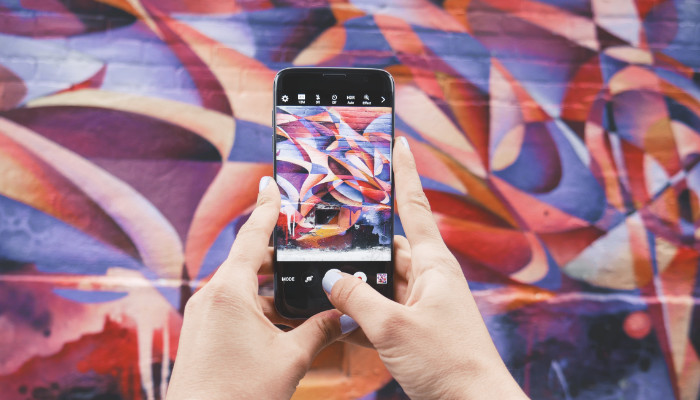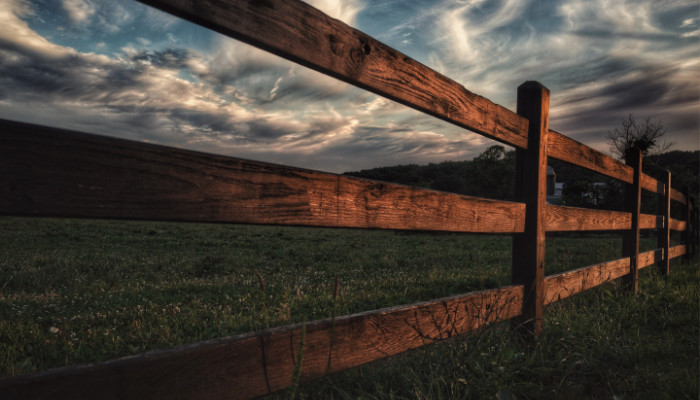Burnout is a common experience among online creators. The nature of online work makes creators uniquely susceptible to burnout. Constant use of creative energy mixed with difficulty fully disconnecting from your work is a recipe for disaster. Acknowledge the risks and learn to manage them now.
If you’ve been dealing with the effects of burnout and you’re having trouble getting back to work as usual, here are a few tips to point you in the right direction.
Shift Your Perspective

When you’re feeling burnt out, blowing everything out of proportion is easy. Even small obstacles look like career-ending problems because you don’t have the mental energy to figure out a way around them. It’s time to force a perspective shift.
Make a habit of reframing situations to remove the extremes and give yourself room to breathe. The extreme consequences we come up with aren’t usually realistic. Even if everything goes wrong, there’s always a way forward that may not be your first thought.
Reframe your perspective by following a situation past the results you’re afraid of. Ask yourself:
- What is the absolute worst thing that could happen?
- What happens after the worst-case scenario?
- If the worst did happen, how would I deal with it?
- Are my fears based on facts or emotions?
- Is there anything I can do about the problem right now?
- What advice would I give to someone else facing this situation?
- How can I still accomplish my goals, despite this obstacle?
- What is my goal, and how does this obstacle affect it?
- Are there other ways to get the result I’m looking for?
- What resources do I have available to me?
- Where will my next opportunity come if I lose this one?
When facing them, problems feel more extensive and ominous, especially if you’re still dealing with burnout. You may be unable to find the best way around a problem immediately. Work on reframing your issues so they don’t take up as much space in your mind.
Diversify What You Do
If your work is causing you to burn out and you have little or no opportunities to delegate, try diversifying instead. Multiple income streams and audience draws benefit creators, so adding something different to your routine helps you both short-term and long-term.
When you hit a high-stress point in your main work, jump over to something else. The trick is to keep it low-pressure and not to take it as seriously. A great example is how most YouTubers with 1m+ subscribers on their main channel also have a second channel where they post more relaxed, experimental content. It’s a simple way to continue interacting with your audience and building your brand without sticking to a strict, formulaic approach.
You can always diversify, no matter what you create. It doesn’t have to be something expected and obvious. A few examples:
- Start a behind-the-scenes TikTok or Instagram account
- Make short storytime videos about some of your career experiences
- Launch a Medium or Tumblr blog for thought leadership articles
- Create a Twitter meme account related to your industry
- Design some basic print-on-demand merch ideas
- Write a book (take your time!)
Learning new skills can help with burnout by engaging your mind and giving you a new spark. Taking on different challenges as part of your work routine infuses learning into your week. It’s a better way to keep expanding your mind without putting pressure on yourself to read a book or take a course outside work.
Create Firm Boundaries

Burnout happens because you give too much time and energy without feeling the results are worth it. Half of this equation can be fixed by setting firm boundaries on what you do daily. You’ll get burnt out again if your work takes over every part of your life.
Be smart about how you set your boundaries. Accommodate yourself and the work you do.
- Set working hours that you can maintain long-term
- Create vacation plans – and don’t cancel them!
- Take regular time off each week on whatever day/days work best for you
- Communicate about your personal plans the same way you do about work plans (i.e., “Sorry, I can’t take a call at that time, I have another engagement.”)
If anyone (read: clients) is asking for something that goes outside the boundaries you’ve set for yourself at work, respectfully communicate about your schedule and look for a middle ground. Flexibility is key. Boundaries are NOT helpful if they make you feel even more trapped and stuck than before. Be flexible to your needs and adjust until it makes sense for you.
Since your old way of working led to burnout, it’s time to take a step back and think about how you can work in a way that suits you better. Putting up appropriate boundaries keeps you on a more sustainable path. Planning those boundaries also helps you understand your limits, arming you with the information you need to avoid overstretching again.
Prioritize Quality, Not Quantity
One consistent issue that causes burnout in creators is the pressure to produce as much content as possible. Platforms often push creators to publish constantly, but it’s nearly impossible to publish quality content at such a breakneck pace without a large team backing you.
Resist the pressure. Quality content will get you closer to your goals than large quantities of passable content. Focus on producing work that brings value to your audience and sticks close to your central mission. One high-quality podcast episode, deep-dive video, or blog post per month will probably help your brand more than a bunch of shallow, forgettable content.
Don’t produce things just for the sake of it. Focus on creating value and give yourself the breathing room to do it.
Connect with Other Creators

Never underestimate the power of a good community. When you have a space to talk about your issues with people who can relate to and understand your situation, you’re better prepared to avoid burnout in the future. Social support is vital for your mental and emotional health, and having a solid community around you provides a good foundation for it.
Communities help support one another by:
- Checking up on physical & mental health
- Offering advice
- Giving an outlet to vent
- Listening to concerns
- Relieving stress
If you don’t have an existing community around you, build it. Communities can be local to you or online if you can connect with others meaningfully. Starting with other online creators in a similar field can make it easier to find a point of connection to kick off a relationship.
Work in Batches
Creativity comes and goes. After burnout or any mental exhaustion, your creativity and motivation might be a little more scattered than before. Instead of trying to force yourself to focus and be creative on demand, work around your mind.
When inspiration hits, roll with it. Make as much as possible in that time, then use your uninspired moments for more tedious tasks like research, editing, and admin.
Batching is massively helpful when brainstorming new ideas and coming up with outlines for any content you’re creating. Inspiration hits, and you come up with one good idea after another! Let that creativity flow, and take notes to have something tangible to work with during an off day.
There’s no timeline for recovering from burnout. Sometimes you’ll wake up feeling inspired for days or weeks, while other times, you’ll struggle to get out of bed and do anything. Don’t make plans that require every day to be a good day, or you risk falling behind on your work and turning up the pressure on yourself even more.
Find Joy Somewhere Else

Last, you need to learn to seek joy and meaning outside of your work and online identity. As a creator, it’s easy to wrap your whole life and identity around what you do and the things you make. If you want to keep from burning out again, you need other things in your life that add meaning to it outside of what you create while working.
You don’t have to pick up a whole entire hobby or launch yourself into a new project outside your work. Instead, give yourself free time regularly and fill it up naturally with whatever you please. Put away anything that connects you with your work and find a new interest that feeds you, engages your mind, and gives you something to look forward to.
Have you ever dealt with creator burnout? What helped you overcome it and move on stronger? Leave a comment below!


